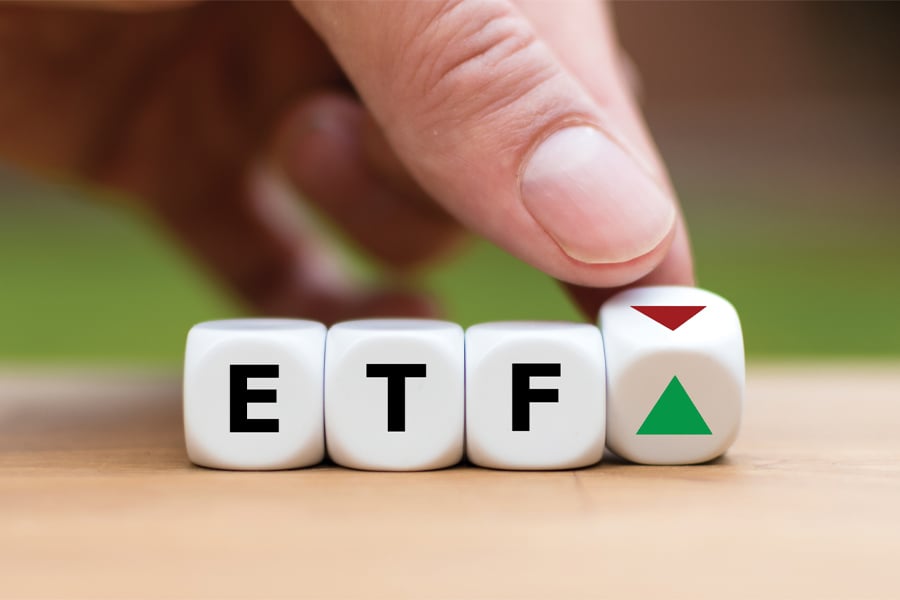

Capital Group, the $2.6 trillion mutual fund giant, plans to launch a slate of ETFs in the first quarter, making it one of the last of the major asset managers to relent by offering the low-cost product to clients.
The company will release six exchange-traded funds covering strategies ranging from value to growth, Capital Group said Tuesday. The funds will be fully transparent, meaning that their holdings will be made public each day.
The firm prepared its entry into the $6.6 trillion ETF business earlier this year by recruiting Holly Framsted, a former BlackRock Inc. managing director, to lead the effort.
After years of sticking with mutual funds, Capital Group's move shows that investor appetite for the product is becoming too hard to ignore. With Ark Investment Management’s Cathie Wood proving that transparent, active management can succeed in the ETF industry, mutual fund managers such as Dimensional Fund Advisors and Federated Investors are also debuting new products to capitalize on the torrent of cash flowing into ETFs.
“Maybe they thought the ETF thing would fade away or reach a peak, but this year has shown it might be early innings,” said Bloomberg Intelligence ETF analyst Eric Balchunas. “The past couple years of flows have turned even the most hesitant firms into believers. Clearly ETFs are really desired right now.”
ETFs have taken in about $557 billion so far in 2021 — already their best year on record — while mutual funds have added just $74 billion, mostly in bond funds, according to data compiled by Bloomberg. Equity mutual funds have lost about $258 billion. Last year, ETFs attracted about $500 billion, while mutual funds lost about that much.
The new funds from Capital Group include: Core Plus Income ETF (CGCP), Growth ETF (CGGR), Core Equity ETF (CGUS), Dividend Value ETF (CGDV), International Focus Equity ETF (CGXU), and Global Growth Equity ETF (CGGO).
This year, U.S. money managers have successfully converted mutual funds to ETFs for the first time, with the likes of JPMorgan Chase & Co. planning to shift more assets to the newer product. But Capital Group will create the ETFs from scratch and plans to offer them alongside other products, such as its American Fund family of more than 40 mutual funds. For instance, the Growth Fund of America (AGTHX) has about $280 billion in assets and has risen more than 25% in the past year.
While there’s a process for firms to launch products that hide their holdings in an ETF wrapper, known as active nontransparent ETFs, Capital Group opted for the fully transparent variety. Nontransparent funds, including those from firms like American Century and T. Rowe Price Group, have struggled since they debuted last year. The category’s largest offering, from Fidelity Investments, holds less than $500 million of assets.
“It displays confidence,” Balchunas said. “ETF investors especially like to see what's in an ETF. They've become used to it.”

A Texas-based bank selects Raymond James for a $605 million program, while an OSJ with Osaic lures a storied institution in Ohio from LPL.

The Treasury Secretary's suggestion that Trump Savings Accounts could be used as a "backdoor" drew sharp criticisms from AARP and Democratic lawmakers.

Changes in legislation or additional laws historically have created opportunities for the alternative investment marketplace to expand.

Wealth managers highlight strategies for clients trying to retire before 65 without running out of money.

Shares of the online brokerage jumped as it reported a surge in trading, counting crypto transactions, though analysts remained largely unmoved.
Orion's Tom Wilson on delivering coordinated, high-touch service in a world where returns alone no longer set you apart.
Barely a decade old, registered index-linked annuities have quickly surged in popularity, thanks to their unique blend of protection and growth potential—an appealing option for investors looking to chart a steadier course through today's choppy market waters, says Myles Lambert, Brighthouse Financial.
